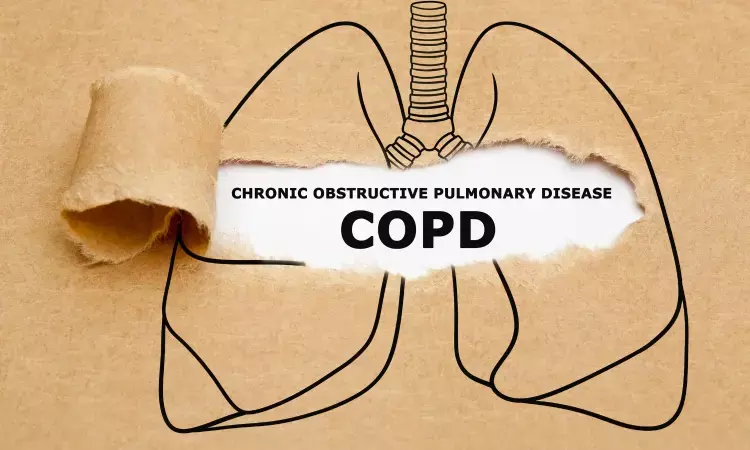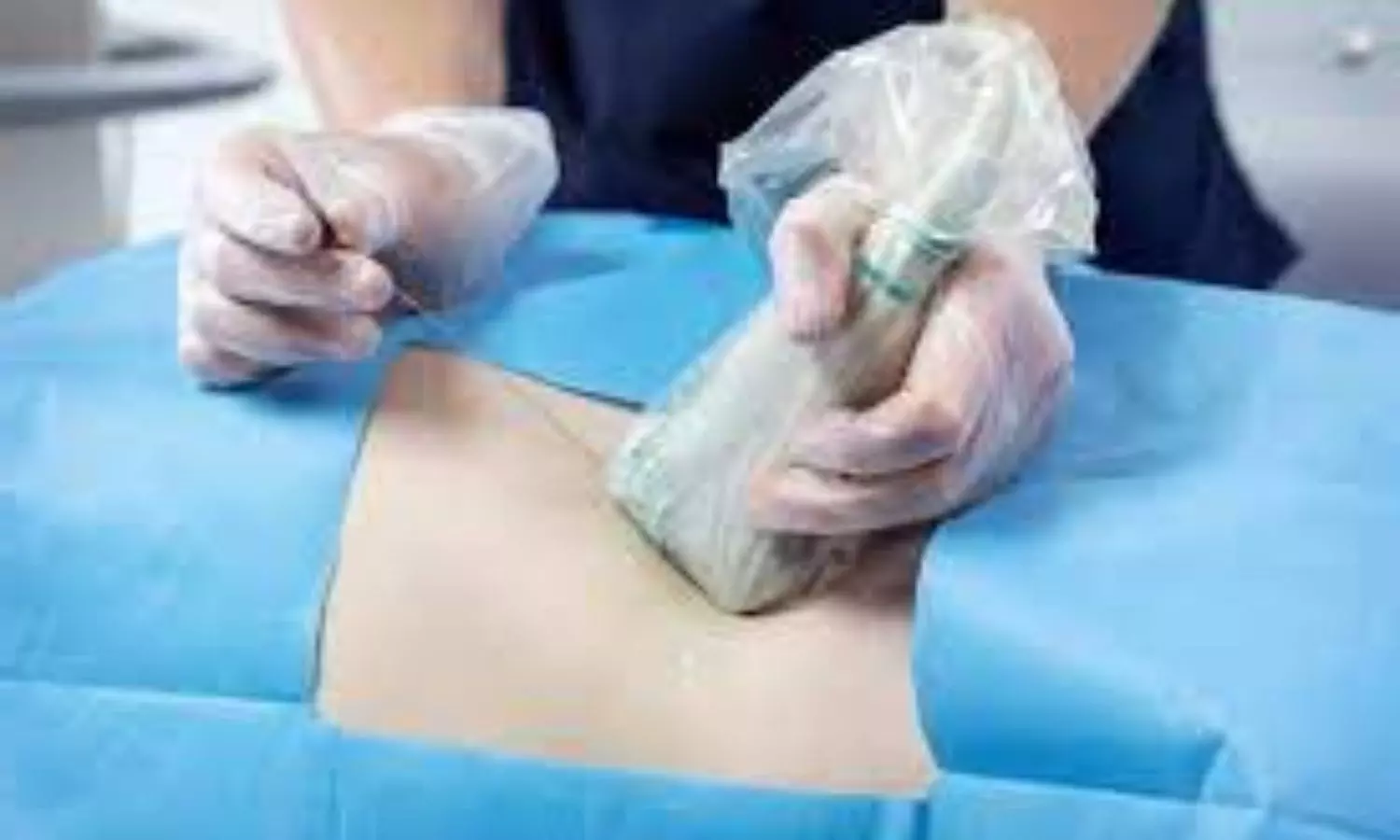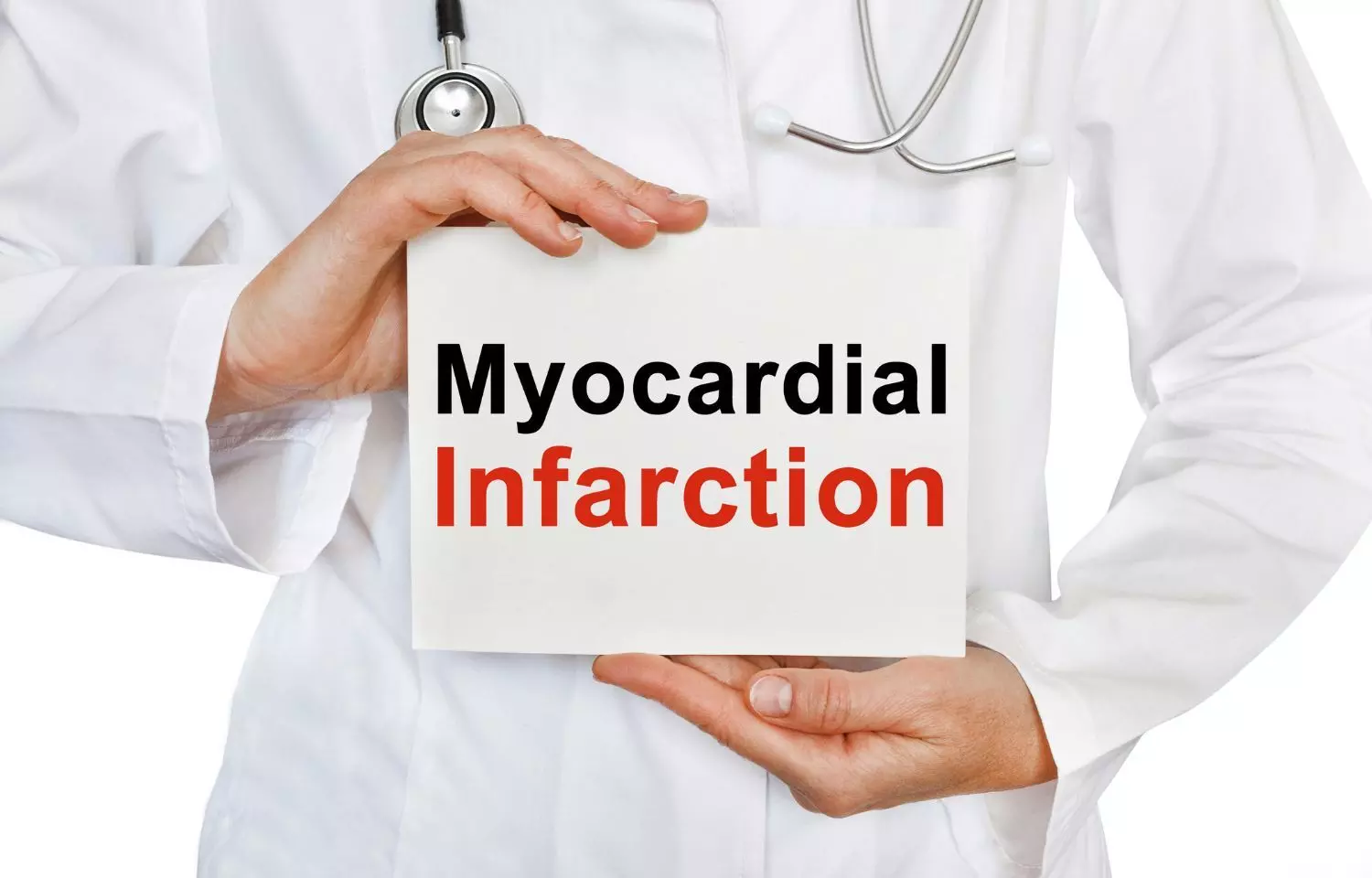- Home
- Medical news & Guidelines
- Anesthesiology
- Cardiology and CTVS
- Critical Care
- Dentistry
- Dermatology
- Diabetes and Endocrinology
- ENT
- Gastroenterology
- Medicine
- Nephrology
- Neurology
- Obstretics-Gynaecology
- Oncology
- Ophthalmology
- Orthopaedics
- Pediatrics-Neonatology
- Psychiatry
- Pulmonology
- Radiology
- Surgery
- Urology
- Laboratory Medicine
- Diet
- Nursing
- Paramedical
- Physiotherapy
- Health news
- Fact Check
- Bone Health Fact Check
- Brain Health Fact Check
- Cancer Related Fact Check
- Child Care Fact Check
- Dental and oral health fact check
- Diabetes and metabolic health fact check
- Diet and Nutrition Fact Check
- Eye and ENT Care Fact Check
- Fitness fact check
- Gut health fact check
- Heart health fact check
- Kidney health fact check
- Medical education fact check
- Men's health fact check
- Respiratory fact check
- Skin and hair care fact check
- Vaccine and Immunization fact check
- Women's health fact check
- AYUSH
- State News
- Andaman and Nicobar Islands
- Andhra Pradesh
- Arunachal Pradesh
- Assam
- Bihar
- Chandigarh
- Chattisgarh
- Dadra and Nagar Haveli
- Daman and Diu
- Delhi
- Goa
- Gujarat
- Haryana
- Himachal Pradesh
- Jammu & Kashmir
- Jharkhand
- Karnataka
- Kerala
- Ladakh
- Lakshadweep
- Madhya Pradesh
- Maharashtra
- Manipur
- Meghalaya
- Mizoram
- Nagaland
- Odisha
- Puducherry
- Punjab
- Rajasthan
- Sikkim
- Tamil Nadu
- Telangana
- Tripura
- Uttar Pradesh
- Uttrakhand
- West Bengal
- Medical Education
- Industry
Increasing daily physical activity fails to improve cardiac outcomes in Severe COPD patients

A recent study found that a 15% increase in daily physical activity over 3 months did not improve cardiac outcomes in COPD. The study was published in the Journal of Chronic Obstructive Pulmonary Disease.
Cardiovascular diseases in COPD affect nearly half of the affected population. It is a huge disease burden causing mortality and morbidity. Cardiovascular pathologies in COPD can be detected by prolongation of the heart rate corrected QT interval (QTc) generated from the ECG. Evidence shows that there is an association between reduced pulmonary function and longer QTc. Literature shows that increased physical activity (PA) influences QTc and also endothelial function in COPD, but the relation is not established. Hence researchers conducted a study to investigate if PA is a modifying factor of QTc in COPD.
A secondary outcome analysis from a randomized controlled trial investigating the effects of a 3-month pedometer-based program to improve PA was done on 59 participants. 12-lead ECG was assessed at baseline and after 3 months. PA was measured using a validated triaxial accelerometer of a multisensory activity monitor at baseline and after 3 months. Standard pulmonary function testing was done to measure forced expiratory volume in 1 s (FEV1) and forced vital capacity (FVC).
Findings:
Patients were grouped into improvers (IG) having 23 participants and non-improvers (NG) having 36 participants.
The mean age of the improvers was 63 years, and the non-improvers was 68 years.
10 patients in IG and 21 in the NG showed prolonged QTc at baseline.
QTc in the IG decreased by 27 ms and in the NG group by 13 ms after 3 months of intervention but the mean group difference showed no evidence of a difference between the two groups.
Multiple regression modeling, including adjustment for baseline QTc, sex, QT-prolonging medications, BMI, smoking status, and FEV1%, showed no evidence for an association between an improvement of ≥15% PA and QTc reduction.
In patients with severe to very severe COPD, a 15% improvement in physical activity over 3 months duration could not reduce the QTc interval.
Further reading: DOI:10.1080/15412555.2022.2101992
Kuhn M, Kohlbrenner D, Sievi NA, Clarenbach CF. Increasing Daily Physical Activity and Its Effects on QTc Time in Severe to Very Severe COPD: A Secondary Analysis of a Randomised Controlled Trial. COPD. 2022 Jul 14;19(1):339-344.
BDS, MDS
Dr.Niharika Harsha B (BDS,MDS) completed her BDS from Govt Dental College, Hyderabad and MDS from Dr.NTR University of health sciences(Now Kaloji Rao University). She has 4 years of private dental practice and worked for 2 years as Consultant Oral Radiologist at a Dental Imaging Centre in Hyderabad. She worked as Research Assistant and scientific writer in the development of Oral Anti cancer screening device with her seniors. She has a deep intriguing wish in writing highly engaging, captivating and informative medical content for a wider audience. She can be contacted at editorial@medicaldialogues.in.
Dr Kamal Kant Kohli-MBBS, DTCD- a chest specialist with more than 30 years of practice and a flair for writing clinical articles, Dr Kamal Kant Kohli joined Medical Dialogues as a Chief Editor of Medical News. Besides writing articles, as an editor, he proofreads and verifies all the medical content published on Medical Dialogues including those coming from journals, studies,medical conferences,guidelines etc. Email: drkohli@medicaldialogues.in. Contact no. 011-43720751




